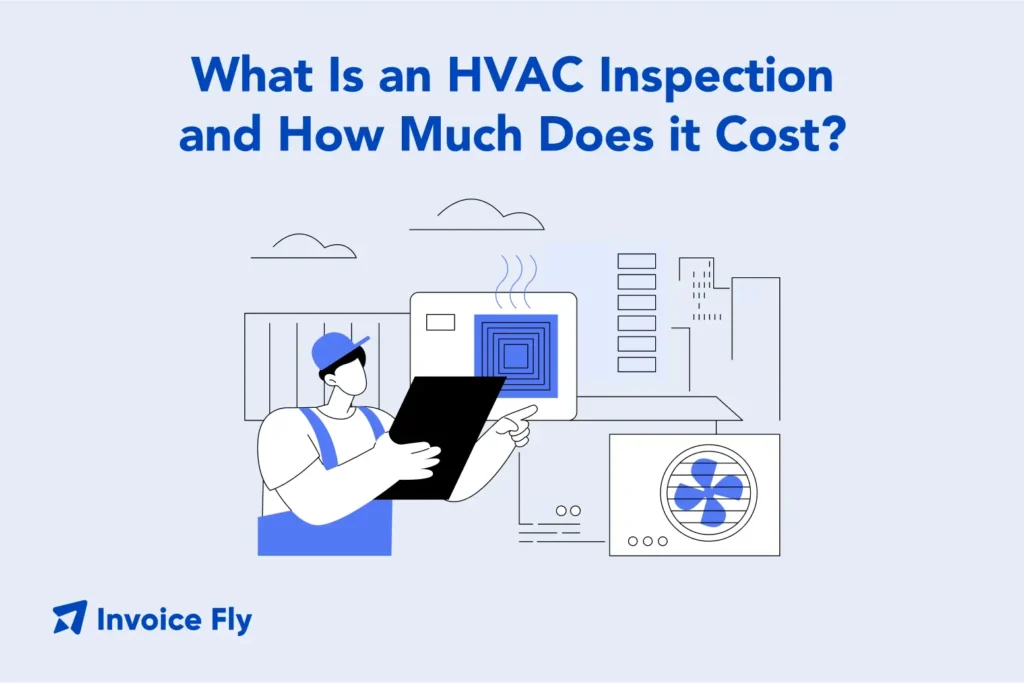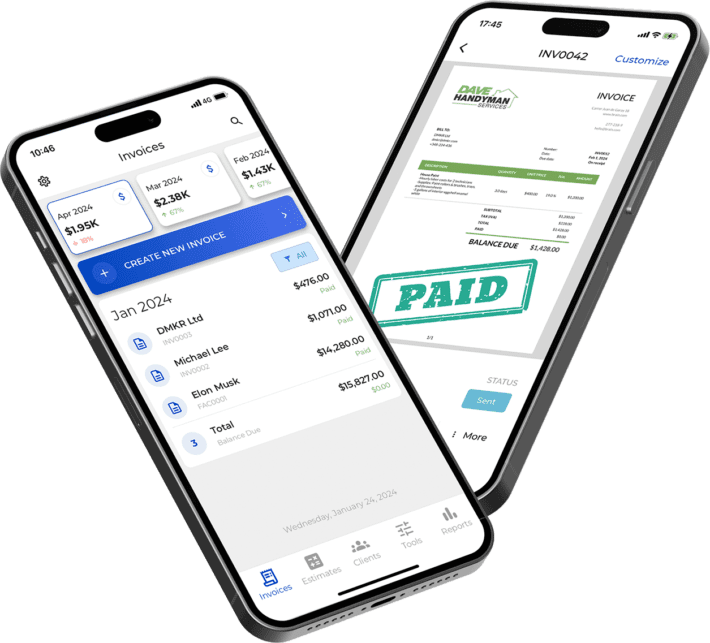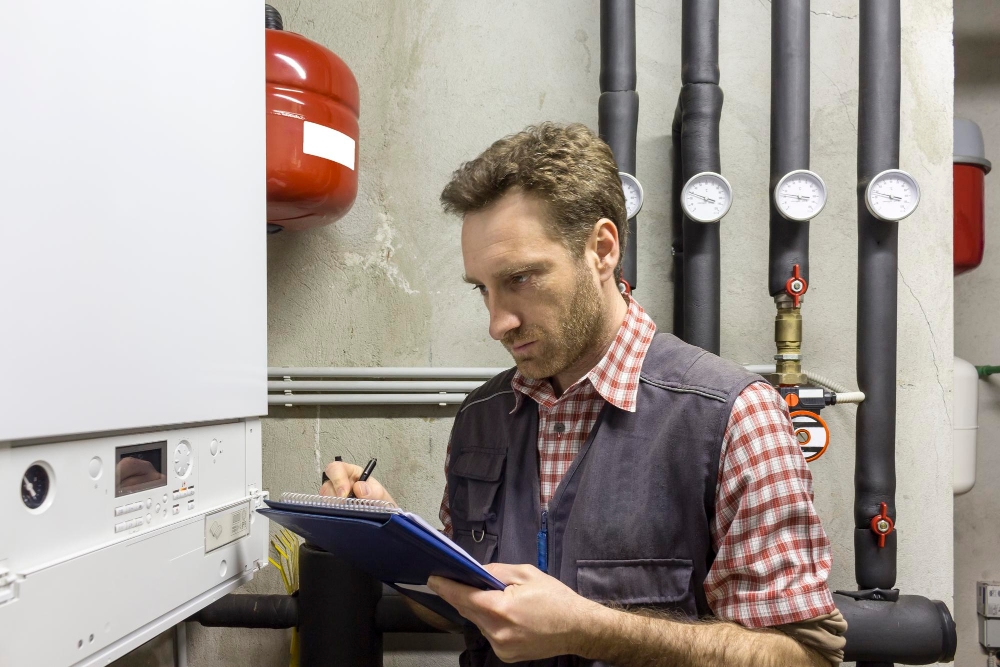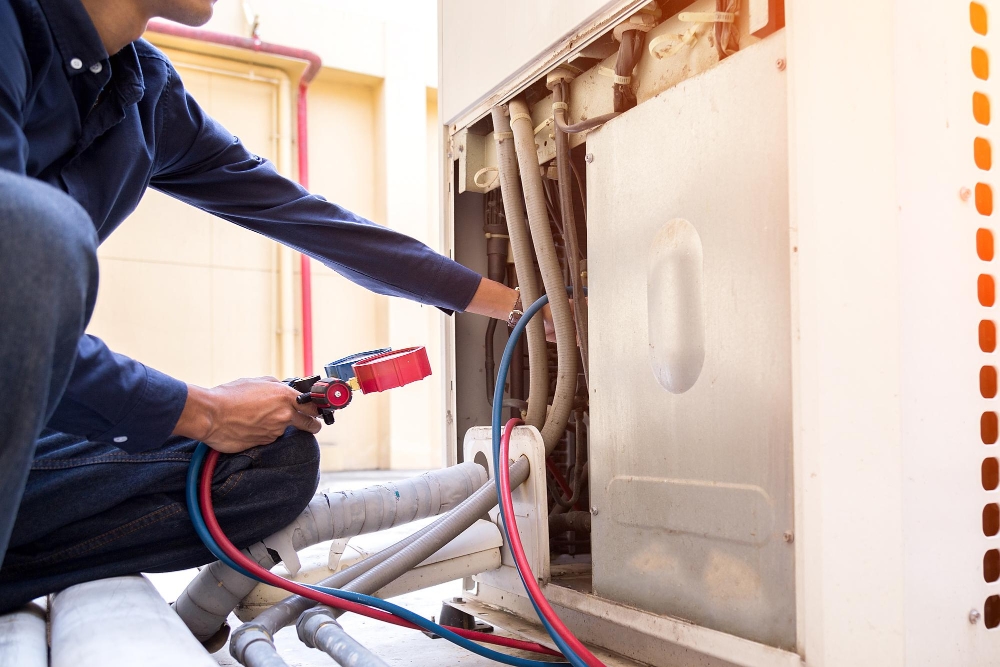What Is an HVAC Inspection & How Much Does it Cost?

Table of Contents
- What Is an HVAC Inspection?
- How Much Does An HVAC Inspection Cost?
- What Does an HVAC Inspection Include?
- HVAC Inspection Checklist
- When Should You Schedule an HVAC Inspection?
- Is an HVAC Inspection Worth It?
- Benefits of Regular HVAC Inspections
- DIY vs. Professional HVAC Inspections
- Start Inspecting
- FAQs about HVAC Inspections
We’ve all been there: it’s the hottest day of the summer, and your air conditioner dies. It’s frustrating, expensive, and completely avoidable. That’s why regular HVAC inspections are so essential for keeping your HVAC systems running smoothly, safely, and cost-effectively. Whether you own a home, manage a commercial property, or simply want to avoid a massive HVAC repair bill, a professional inspection is your best defense against unexpected breakdowns.
This guide is designed to give you a clear picture of the full process. It will break down:
- What an HVAC system inspection covers.
- What determines the typical HVAC inspection cost.
- Why scheduling an annual HVAC inspection is one of the smartest things you can do for your property.
- How these check-ups protect your investment and save you money down the line.
Curious about taking things a step further? Check out our How To Start Your Own HVAC Business: Step-by-Step Guide.
What Is an HVAC Inspection?

An HVAC inspection is essentially a full physical exam for your HVAC unit and its related HVAC systems. It’s a comprehensive, multi-point check performed by a certified technician to assess the safety, efficiency, and working order of your heating system, ventilation, and air conditioning system.
The main goal is preventive: technicians look for small issues, like a dirty air filter or minor corrosion, before they escalate into major, costly failures requiring extensive repairs or replacement. They’re checking everything from the outdoor air conditioner unit to the indoor heating system components.
For more detail, see our HVAC Technician: What Do They Do & How To Become One.
Get Started with Invoice Fly’s Software
Invoice Fly is a smart, fast, and easy-to-use invoicing software designed for freelancers, contractors, and small business owners. Create and send invoices, track payments, and manage your business — all in one place.

How Much Does An HVAC Inspection Cost?
The typical HVAC inspection cost can vary, but generally ranges from $75 to $600, depending on a few key factors. If you sign up for an HVAC tune maintenance contract with a local provider, the price per visit is usually at the lower end of that range.
Factors that influence the final inspection cost include:
- Location: Metropolitan areas often have higher labor costs.
- System Type: Inspecting a complex commercial system will cost more than checking a standard residential furnace.
- Timing: Emergency or weekend service calls are almost always more expensive than a scheduled annual HVAC inspection.
- Scope: If the HVAC system inspected is part of a larger home inspection (during a real estate transaction), the fee may be bundled or adjusted.
For salary context, check our Average HVAC Salary Guide for Technicians in 2025 and for additional pricing resources, see HVAC Pricing Guide: How to Charge Confidently.
What Does an HVAC Inspection Include?

A comprehensive HVAC inspection covers dozens of checks across the three main parts of your HVAC equipment: the heating system, the cooling system, and the ventilation system. The technician uses an inspections checklist process to ensure everything is covered.
Heating System Checks:
- Checking the heat exchanger for cracks or corrosion, which can cause dangerous carbon monoxide leaks.
- Testing the ignition system, gas pressure, and thermostat calibration.
- Inspecting all gas lines and flues to ensure proper venting.
Cooling System Checks:
- Measuring refrigerant levels and pressure.
- Cleaning the evaporator coil and condenser coil (outdoor air conditioner).
- Checking and clearing the condensate drains to prevent leaks and mold growth.
- Examining the fan motor and compressor to ensure they are drawing the correct amperage.
Safety and Airflow Checks:
- Testing all high and low-voltage electrical components for wear and proper operation.
- Checking ductwork for leaks.
- Replacing or cleaning the air filter.
- Creating a detailed HVAC inspection report.
Learn more about keeping your system in shape in our Best HVAC Service List To Offer To Your Customers in 2025.
HVAC Inspection Checklist
While no two service calls are identical, a professional HVAC inspection checklist provides a baseline for quality assurance. Key items on any HVAC inspection checklist include:
- Verify proper voltage and amperage to all HVAC equipment.
- Clean or replace the air filter.
- Check all safety controls and limit switches.
- Lubricate all moving parts, especially the fan motor.
- Clean the outdoor condensing coil and indoor evaporator coil.
- Ensure the condensate drains are completely clear.
- Check temperature differential (supply vs. return air).
- Inspect the condition of the heat exchanger.
- Test the overall working order and efficiency of the air conditioner and heating system.
When Should You Schedule an HVAC Inspection?

The general consensus is that you should have an HVAC system inspected twice a year: once for the heating cycle and once for the cooling cycle. This is why the annual HVAC inspection is often split into two appointments.
- Fall (Late September/Early October): Schedule a check-up for your heating system (furnace or boiler) right before the weather gets cold. This ensures the heat exchanger is safe and ready for winter.
- Spring (Late March/Early April): Schedule a maintenance check for your air conditioning system. This ensures the refrigerant levels are good, the evaporator coil is clean, and the air conditioner is ready for the summer heat.
For more seasonal prep tips, check our HVAC Marketing Strategy: Increase Marketing Profits in 2025.
Is an HVAC Inspection Worth It?
Absolutely. Think of the HVAC inspection cost as insurance against much more expensive problems. Spending $100 to find a minor issue is far better than spending $3,000 on major HVAC repair or emergency repairs or replacement when the HVAC unit fails completely on a holiday. Regular checks ensure your expensive HVAC equipment lasts longer and performs more efficiently, saving you money every month on utility bills.
Benefits of Regular HVAC Inspections
Scheduling consistent HVAC tune visits offers tangible benefits that extend beyond simply preventing breakdowns.
- Early Prevention
Technicians can spot problems like worn electrical components or small refrigerant leaks long before they cause system failure. This early diagnosis prevents a small repair from becoming an enormous HVAC repair job.
- Early Prevention
- Avoid Unexpected Breakdowns
Regular maintenance ensures your air conditioning system and heating system are always in working order, significantly reducing the chance of an inconvenient breakdown during peak weather.
- Avoid Unexpected Breakdowns
- Reduce Utility Bills
A clean HVAC unit with a fresh air filter and clean evaporator coil doesn’t have to work as hard. This maximum efficiency translates directly into lower monthly energy costs for your HVAC systems.
- Reduce Utility Bills
- Extend System Longevity
When all HVAC equipment is clean and well-lubricated, it reduces stress on major components, delaying the need for costly repairs or replacement and extending the overall life of your system.
- Extend System Longevity
- Maintain Your Warranty
Many manufacturers require proof of annual HVAC inspection to keep the warranty on your HVAC unit valid. Without a proper HVAC inspection report, you may be liable for expensive repairs.
- Maintain Your Warranty
- Improve Indoor Air Quality
A professional check ensures all internal components are clean, including the removal of debris from the condensate drains and a fresh air filter. This prevents the circulation of dust, mold spores, and allergens through your HVAC systems.
- Improve Indoor Air Quality
DIY vs. Professional HVAC Inspections

You can certainly handle basic DIY items, like replacing your air filter or clearing debris from the outdoor air conditioner unit. However, a professional HVAC inspection is non-negotiable for safety and technical reasons.
Only a trained technician should handle complex tasks such as:
- Testing the integrity of the heat exchanger.
- Checking refrigerant pressure.
- Working with live electrical components.
- Using specialized tools to create a full HVAC inspection report.
While a basic DIY check is part of good home maintenance, relying on professional HVAC inspections twice a year is the only way to ensure your HVAC unit remains safe and efficient.
Start Inspecting
Regular HVAC inspections are a small step that deliver big rewards: lower energy bills, fewer breakdowns, and longer system life. Whether you’re a homeowner or running a business, planning these check-ups twice a year protects your investment and keeps your property comfortable year-round. If you’re in the HVAC trade, they’re also a great way to build trust and long-term relationships with clients.For business owners, tools like Invoice Fly’s Invoice Maker can simplify billing for inspection visits and service calls.
Get Started with Invoice Fly’s Software
Invoice Fly is a smart, fast, and easy-to-use invoicing software designed for freelancers, contractors, and small business owners. Create and send invoices, track payments, and manage your business — all in one place.

FAQs about HVAC Inspections
Yes, absolutely. The small HVAC inspection cost is a wise investment that prevents major, expensive emergency breakdowns and ensures maximum energy efficiency, ultimately saving you money over the long term.
You should schedule an annual HVAC inspection that includes two visits per year: one HVAC tune in the spring for the air conditioning system and one HVAC tune in the fall for the heating system.
A thorough, professional HVAC inspection usually takes between 45 minutes and 1.5 hours per HVAC unit, depending on the complexity and age of the HVAC equipment.
An HVAC inspection is focused on diagnosis and creating an HVAC inspection report (identifying issues). HVAC maintenance (or HVAC tune) often includes both the inspection and minor tasks like cleaning coils, replacing the air filter, and lubricating the fan motor to restore the system to its best working order.
The average HVAC inspection cost ranges from $75 to $250, though this often depends on whether you have a yearly maintenance plan. Emergency service will always cost more.
For additional resources, see HVAC Pricing Guide: How to Charge Confidently.
